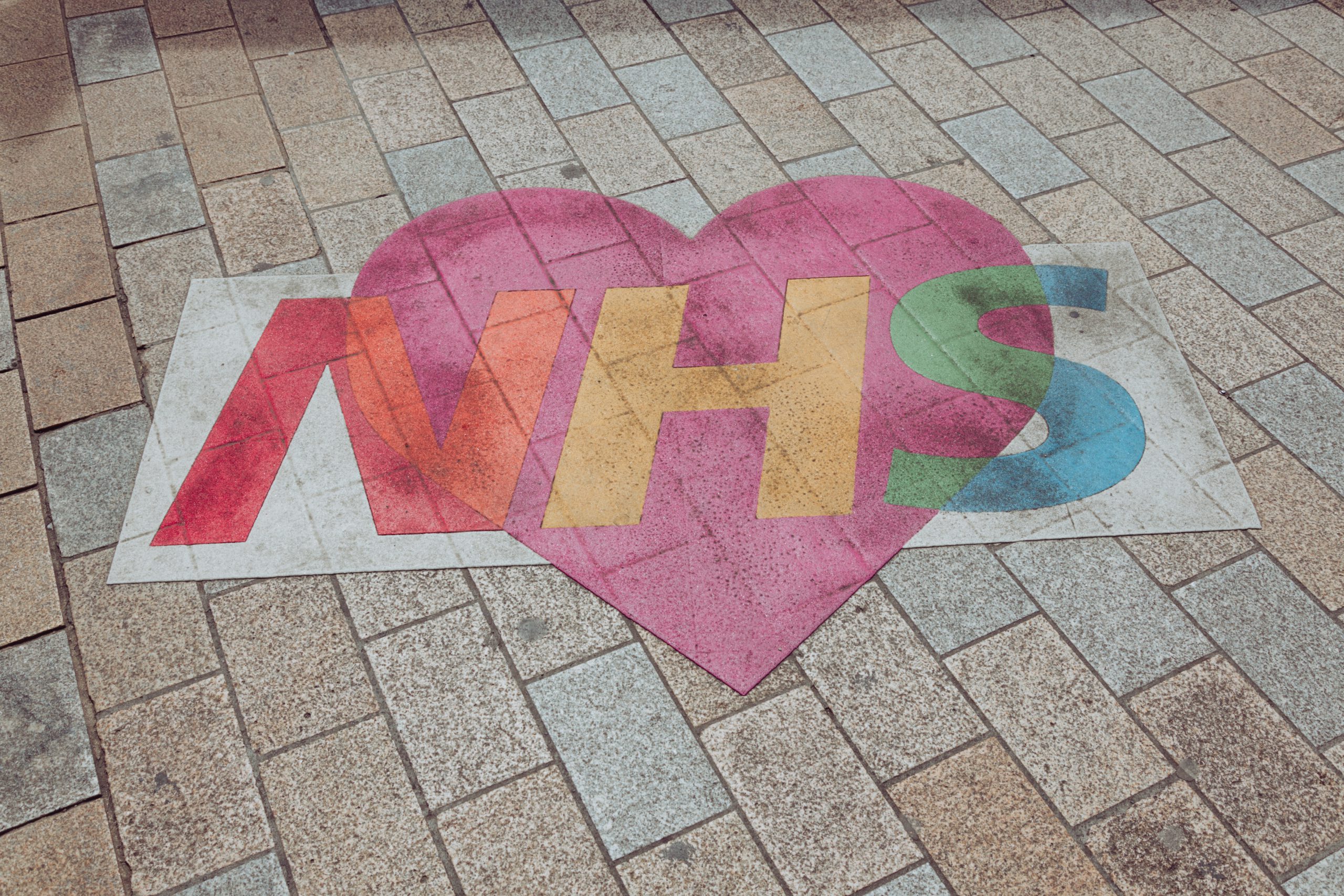Gordon Hector | Twitter
Gordon Hector worked as Director of Policy and Strategy for the Scottish Conservatives. Before this, he worked for a hospital management company which ran elective and acute services across England. This included working as Head of Communications for an acute hospital trust. He now works on public services policy at Urban Foresight, a consultancy in Dundee.
The ambulance service crisis is dominating the news. But one thing is missing: ideas on how the Scottish Government should do better in response. Opposition parties, academics and the media are not as well-equipped as government to define policies to tackle crises, for the simple reason they know far less about what is going on. Others like unions or royal colleges are naturally involved in the front-line at moments of stress, rather than policy debates.
This means that in a crisis, we have often have little sense of what government should be doing. The tell-tale sign is usually one too many tweets from MSPs using the phrase ‘get a grip’. What is to be gripped? And by whom?
I’ve been in the room for a few minor public services crises and have written more than my fair share of ‘get a grip’ tweets, too. So to be a bit more constructive, here are 5 things that we should expect to see from Ministers in this kind of healthcare crisis.
Cash
Good managers in the NHS understand the financial implications of their choices; bad ones are penny-wise and pound-foolish. The last thing you want in a crisis is someone, good or bad, blocking an essential clinical move because they are unsure if they have the resources to do it – things like bringing in staff on overtime, speeding up procedures which are paid for by the item, or bringing in outside help. Central government needs to give confidence that the response will be supported, without permanently losing all financial control. This is what the £20m the Scottish Government announced for the ambulance response is trying to do, and it feels about the right level of short-term response.
Set up mission control
Many NHS organisations use a crisis management structure called Gold-Silver-Bronze, which sets up a series of strategic, tactical and operational teams. They have clearly-understood rules on who does what.
This works. But the problem is that any NHS crisis is also a political crisis. So the NHS might have a structure, but Ministers will often not know how to interact with it. They can either lose all control by not assuming enough responsibility – or clog up decision-making with too much central control. Either extreme leads to failure.
People laughed at Dominic Cummings’ mission control-style bunker, but something like it is actually the right approach. The point is to create a forum for absolute, full-time political leadership with situational awareness and clarity of decision-making. If there isn’t a room at St Andrews House with a team of crack civil servants and the Cabinet Secretary, a big chart with the status of sites across Scotland, and clear communication channels and devolved responsibility to board-level leaders, something is wrong. If they’re doing it on Teams, we are doomed. Equally, if isn’t clear whether this is a crisis being led by the Health Secretary or the First Minister, then wires will inevitably become crossed.
The parallel, oddly, is the small decision-making teams that run elections. A good election campaign is an attempt to impose order on events by a small team who have complementary skills and a clearly-recognised decision-making structure. A politician should treat an NHS crisis with the intensity of a central campaigning team. Anything less will fail.
Stem the flow
The critical concept in many healthcare services is flow: you want people to proceed smoothly and safely through their care, with the number of people turning up at the front roughly the same as the number of people leaving at the back.
This is a fragile balance of supply and demand. When it breaks, the ambulances start queuing.
The really big risk is a chain reaction: if things get really blocked up, then staff get exhausted. Sickness absence creeps up, and conditions which could be treated early become more serious. So delays get worse. So you lose more staff. And the whole thing starts to spiral. This sounds melodramatic, but the spectre that hangs behind every ‘NHS in crisis’ story is that one day, it could lead to a devastating domino effect across the system.
The priority is to stop that happening. So you relentlessly prioritise flow: getting people in, treated, and out. That can mean different things depending on where the block is: just now the critical shortage appears to be ambulance crews, so that means finding more paramedics and vehicles. The Royal College of Emergency Medicine suggests the issue is beds, too – so the board-level response is often to cancel elective care and use those beds for emergency care. For some hospitals, the priority could be to secure social care places for medically fit patients, so that no-one sits in A&E waiting for a ward bed to free up. The role of national politicians in all this is to take quick, dramatic action when a clear system-wide intervention is needed, such as bringing in the army, or creating significant new capacity.
There is no escaping that this is a game of grim trade-offs. Cancelling non-urgent care ruins someone else’s care and creates a longer-term backlog. And in the pandemic, the rush to discharge patients into care homes was a mistake.
But this is the awful reality of crisis management. You have to focus. It’s brutal: fix the flow, or risk a spiral. So that’s the priority, and we should judge ministers on their ability to make and explain these sorts of lose-lose decisions.
Give staff an end date
Why is this particular crisis so acute? It’s surely because staff are already exhausted. They’ve spent 18 months fighting the pandemic, and now the pressure is ramped up again. They have winter ahead of them.
It’s just unsustainable to keep people operating at this kind of a fever pitch. So a good leader doesn’t just increase pressure and then increase it again. They give their team a sense of progress, and find ways to reduce the sense of endless attrition.
The best clinical leader I’ve seen was positively Churchillian: not just issuing decisions but giving a story of what those decisions meant, and judging when to suggest the end of the beginning was dawning. They gave the crisis a narrative. That helped staff make sense of their experience and bound them to the collective response. They felt they were walking through the fire together, in the knowledge normal life would one day resume.
Again there is a tension between political and operational goals: a politician would be nuts to ever put a timeline on a crisis ending, or to go into full wartime oratory.
But between them, NHS leaders and Ministers need to communicate that this is not a one-way ratchet of ever-increasing pressure, but a struggle in which we will prevail. They have to give a sense that the end – or at least, some kind of end – is possible.
Fix big problems before the next crisis
So when the end comes, what then? For staff, this is the moment to have some slack. For politicians it’s the moment to absolutely not have any slack, because their job is to work out how to prevent the next crisis. That’s best done with the momentum of recent events. A good Minister won’t just breath a sigh of relief when the headlines move on – they will get their civil servants to deconstruct what they’ve just lived through, and define whatever systemic problems need fixing. Most likely that’s a combination of staffing, funding, structures and long-term culture, and the test of a Minister is that there are signs of this kind of deep reflection even when there is no pressure from the media or opposition to do so.
None of this is easy but all of it is essential. Crises like this one are underpinned by long-term issues. They will keep happening until there is a clear articulation of a vision for the whole NHS which addresses those issues.
We do not have that vision just now. We are running on reactive mode.
And this frames the real choice: do the hard thinking and policy spade-work to define what the NHS is going to be in 10 or 20 years.
Or don’t, and relive the cycle of crises. They will get worse, and one day, it will be a tragedy at scale.
For Ministers this need to keep moving might sound relentless: no sooner have you got through a rough patch, but you need to be thinking big strategic thoughts.
But then relentless work is what we have asked of clinicians these past few years. Relentless stress is what patients are going through right now: everyone who needs an ambulance, or who’s just had their surgery cancelled.
So it’s probably the least we can ask of politicians: do the work. And stop this happening again.






